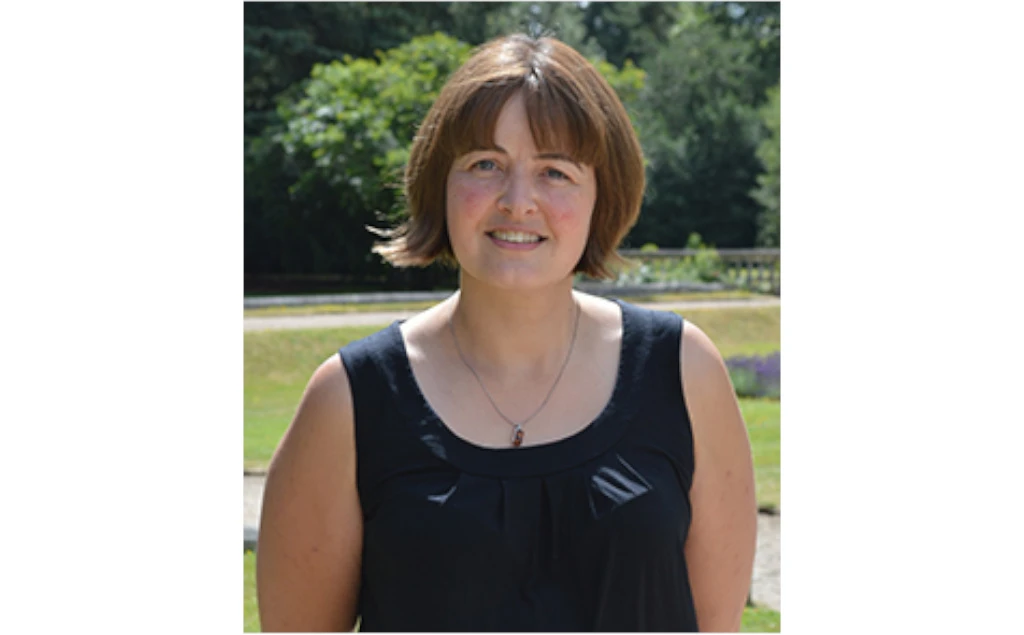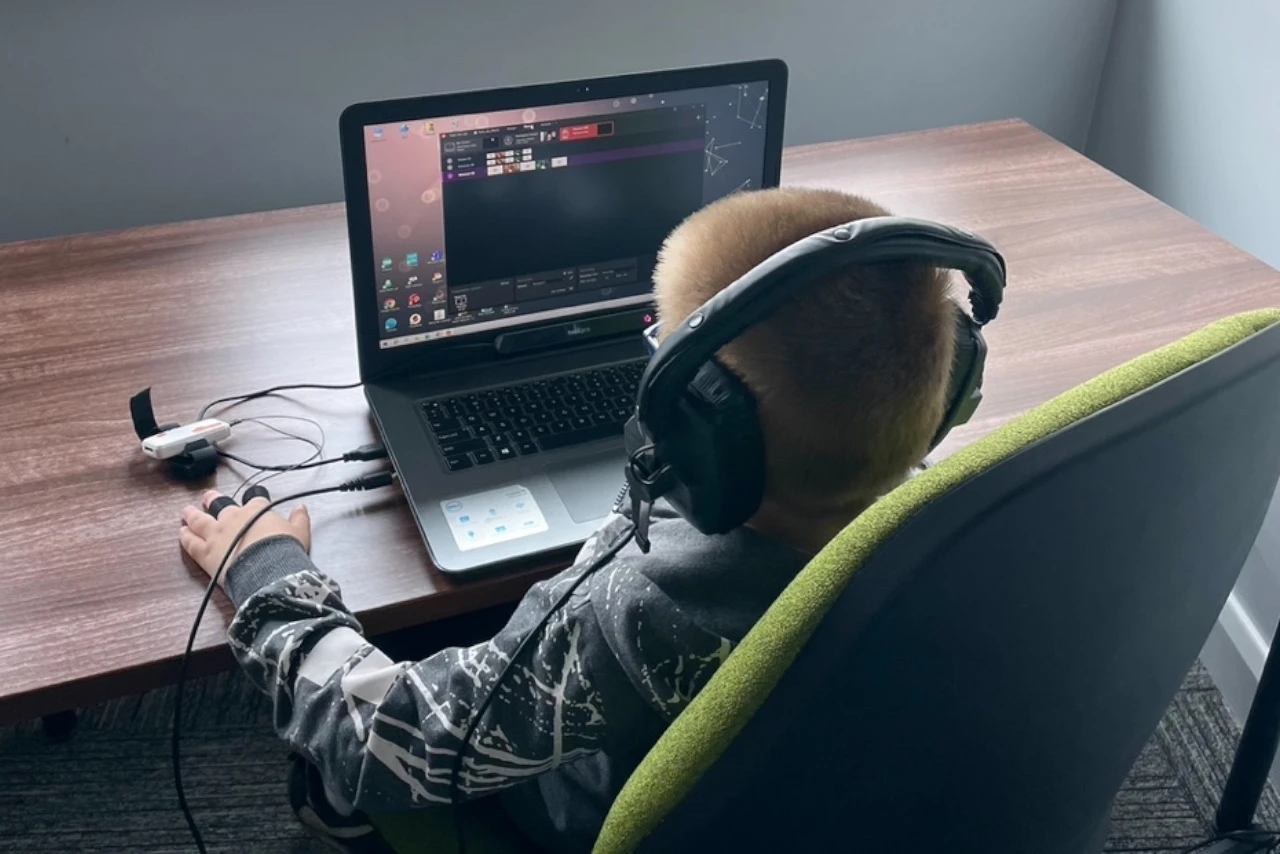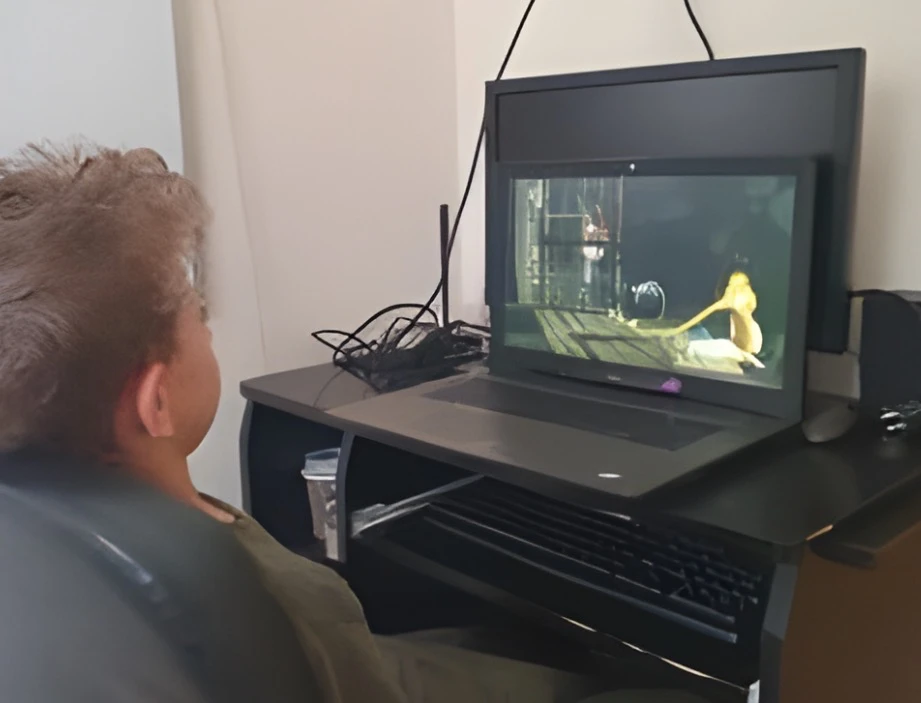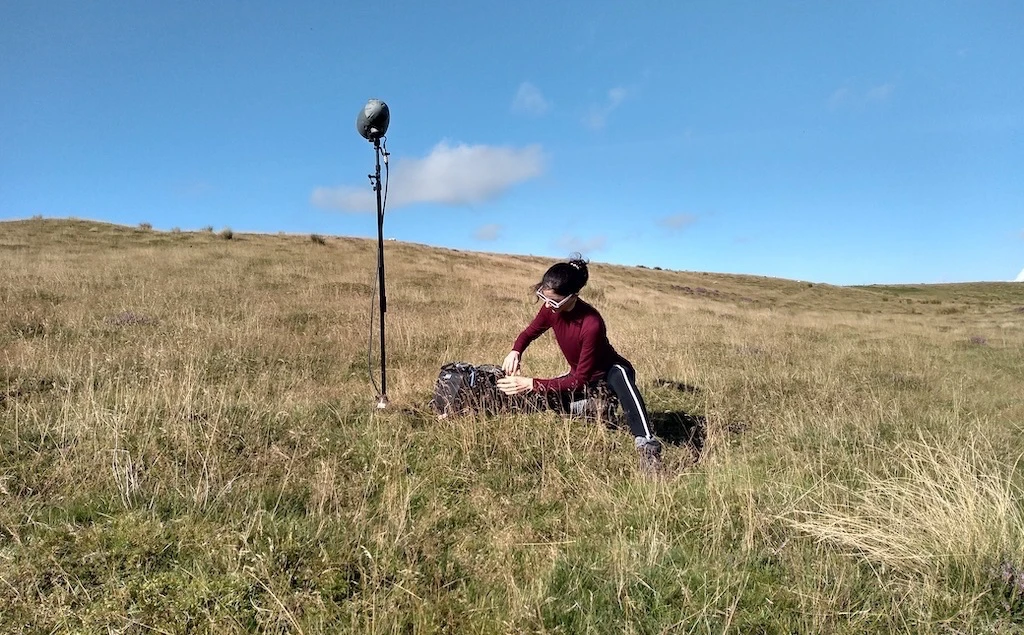How did you first become interested in accessibility?
I have always been interested in issues related to accessibility, but had initially considered them within the framework of inclusion. My brother is autistic so, growing up, I was very aware of the different needs that people have and how provision for these can vary. Then, when I began teaching, creating an inclusive classroom was a central part of my daily work. I first discovered Media Access when I retrained as an audiovisual translator. This new area was one that combined my love of languages and linguistics with my desire for access and equality.
What surprised you most in your work practice?
If you think about intralingual subtitling for the deaf and hard of hearing audience, where the subtitles appear in the same language as the spoken soundtrack, you might think the work involved is very simple – write down the dialogue and any other sounds that have been recorded. In fact, the process is far more complex than that. Space and time constraints (which ensure that the subtitle appears on screen long enough to be read, without blocking the visual image), mean that the subtitler must make subtle alterations to the content of each subtitle, without losing key information or confusing the audience. It can also be a real challenge sometimes to work out what to write – what was that obscure art term the presenter used and how do you spell it? What language are they speaking? What is that lyric? What may seem like a simple job is actually full of hidden complexities.
Are there any restrictions or boundaries you (have to) abide by?
I’ve already mentioned the technical constraints that you need to follow while subtitling. Added to that, there is the ethical and professional responsibility that a subtitler, or any translator, has to make sure that their representation of the message is an accurate one that does provide access, and that they work to the best of their ability within the timeframe they have.
What do you hope to achieve through your work?
I would love to see the provision of access increase. I want to explore how more films, programmes and events can be made accessible and which different audience groups could benefit from the access. This might involve different advertising so people know in advance that access will be available and it will also mean that the access flows smoothly. Plus, the access must be of good quality – it must really enable the audience to engage.
Can you tell us a little about your forthcoming projects (related to accessibility)?
My current project explores how respeaking, where live subtitles are created through speech recognition software, can be used to make live events (Q&A, discussions, walking tours, presentations, music events…) more accessible. Respeaking is already used to subtitle the news, chat shows and other live programmes on television. I’m investigating how to transfer this technique to live events, whilst continuing to provide good quality access, and I’m also investigating which audience groups would benefit from it. Collaboration is at the heart of my research, so if you want to find out more, do get in touch.
Zoe also took part in our first conference,, on which more information can be found on our relevant page.




